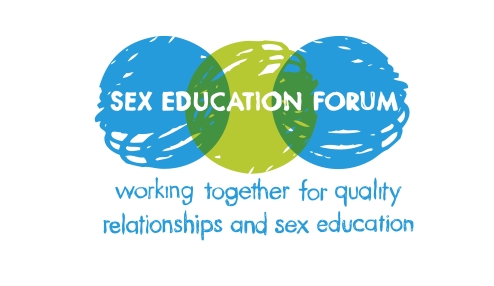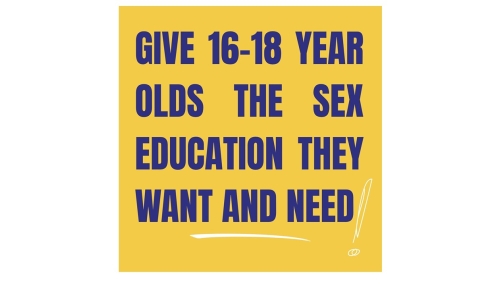Our latest advice to deliver effective and evidence-based RSE for all pupils.
As the academic year 2021-2 draws to a close there are healthy signs that many schools have made big strides with implementing high quality, statutory RSE. The high standard of entries in the recent Sex Education Forum RSE Awards 2022 showed how much can be achieved over the course of a year. The involvement of children and young people, staff, parents and carers came through time and again as key to success.
Since September 2021, all schools in England must follow the Government RSHE guidance in full, but evidence suggests that implementation is still a work in progress. Investment in training and roll out support from Government has been limited. The task of implementation is incomplete.
Worrying gaps in RSE provision continue to persist
The gaps are highlighted by findings from our autumn 2021 survey of 1000 young people aged 16 and 17 years old. Twenty-two percent of respondents rated the quality of their school RSE as ‘bad or ‘very bad’. One in three (33%) didn’t learn ‘How to access local sexual health services’ despite this being a basic, mandatory part of RSE. While thirty-seven percent reported learning nothing about ‘Power imbalances in relationships’.
It is just over a year since Ofsted’s review of sexual harassment and sexual abuse (June 2021) sent shockwaves to schools and parents alike. In response, the Government restated its commitment to RSHE as a tool to tackle violence against women and girls and support young people with healthy relationships.
The Ofsted review has created greater awareness of how widespread and normalised sexual harassment in schools has become, and of the young age at which it can start. A whole school approach to tackling sexism and misogyny has been advocated, with the RSHE curriculum playing a central part.
When rules on Covid-19 relaxed, school inspections resumed, and Ofsted reports are now frequently commenting on the quality of RSHE. Where quality is lacking, Ofsted’s main concerns are often about failure to tackle the big issues affecting children and young people, such as sexual harassment and sexual abuse.
Increasing challenges over RSE provision
Against this backdrop, there has been a recent spike in media articles and debates in Parliament that level criticism at RSE resources and RSE specialists working to help schools with their provision. Taking extracts from resources out of context, and making misleading statements about how they are used, is a style of demonising RSE that we have seen many times before, over many years.
Making considered choices about which resources to use in RSE and how to use them is an important skill for teaching the subject effectively. It is a skill that stems from training and having the time available to plan RSE lessons properly.
Furthermore, there is now an amendment in the House of Lords to the Schools Bill which proposes that parents be allowed to see curriculum materials used for any subject, and to view those materials on the school site. The issue of RSE materials was raised during a recent Westminster Hall debate, with the now former Schools Minister, Robin Walker stating, ‘we do expect schools to respond positively to all reasonable requests from parents to share curriculum material’, and that materials, including RSE resources, can be shared on the school premises.’
Schools are free to choose the resources they use, and can refer to RSHE implementation guidance from Department for Education, which advises that external agencies and resources used in RSHE comply with the school’s policy, the Teaching Standards, the Equality Act 2010, the Human Rights Act 1998 and the Education Act 1996.
Transparency is vital in the delivery of RSE
The Sex Education Forum believes it is vital that schools are transparent with parents about their RSE provision and resources. Dialogue with parents is essential for building understanding about what RSE really involves, the effectiveness of RSE, challenging misconceptions about the subject, and finding ways of working with families to meet the RSE needs of children and young people.
Transparency should guide all discussions about RSE, so that everyone’s involvement in dialogue is honest. Discussion should be centred around a shared understanding of the outcomes all RSE educators want for children and young people’s health and wellbeing. We want our children to recognise if they were sexually abused and know how to get help, we want our children to be safe online, and we want our children to be kind and to be treated with kindness.
Schools, families and Parliamentarians all have a part to play in achieving the best possible outcomes for children. This must be our collective focus and endeavour.
There remain significant hurdles to overcome in the delivery of effective RSE but the Sex Education Forum will continue to be the collective voice for high quality, evidence-based, and inclusive RSE for all pupils.
Our free to access briefing provides an accessible and accurate summary of the research evidence relating to RSE. Below are some additional Sex Education Forum resources and support available for RSE educators.
- Access the Sex Education Forum’s short guide: Transparency in RSE provision and communication (2022)
- Criteria for choosing and using resources
- Guide to external visitors and RSE (2021)




Share